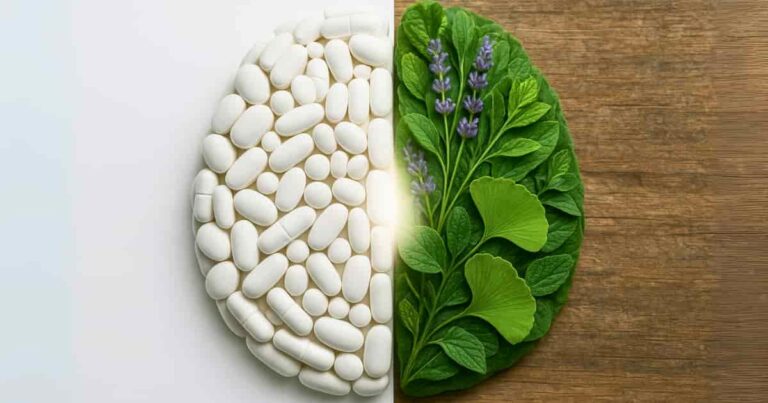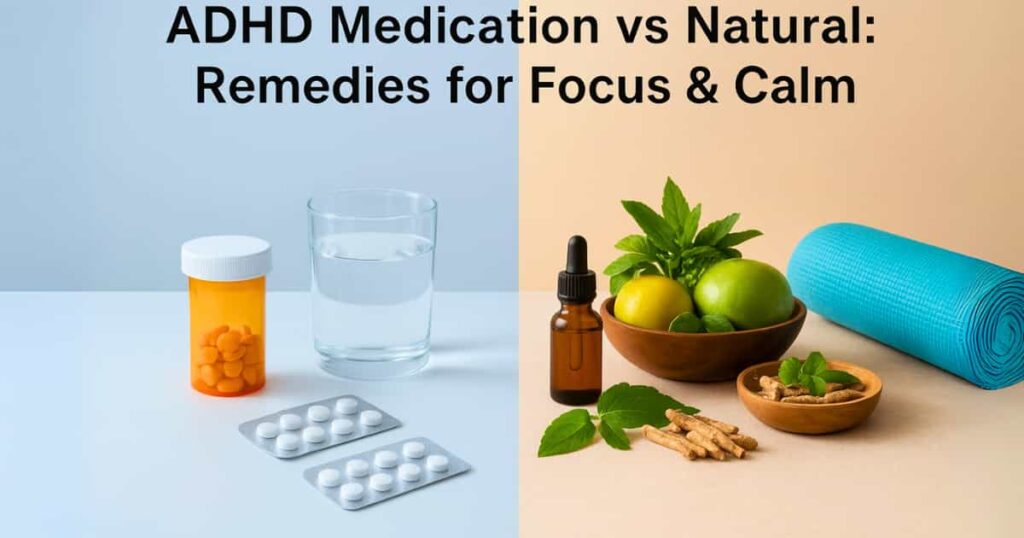
Alright, let’s get into it. Living with ADHD is like having ten TVs on at once in your head — and someone else has the remote. Sound familiar? You’re not alone. When it comes to finding what helps, many people are curious about the whole ADHD medication vs natural approaches debate.
Here’s the real tea: it’s not about “medication vs natural” as some kind of celebrity deathmatch. It’s about what works for YOU. Maybe meds help you focus. Maybe cutting out gluten, taking walks, or finally nailing a sleep routine does the trick. Or — plot twist — maybe it’s a little bit of both.
In this article, we’ll skip the jargon and look at what actually helps, what doesn’t, and how to build a plan that doesn’t suck. Just remember — I’m a writer, not your doctor. So before you make any big changes, please please please talk to a healthcare pro. They’ve got the degree, I’ve got the Google history.
ADHD Medication vs Natural: What’s the Difference?
First, it’s important to understand the main ways to help with ADHD. Basically, you can use doctor-prescribed medicine or you can try more natural options. They are very different, so it helps to know how.
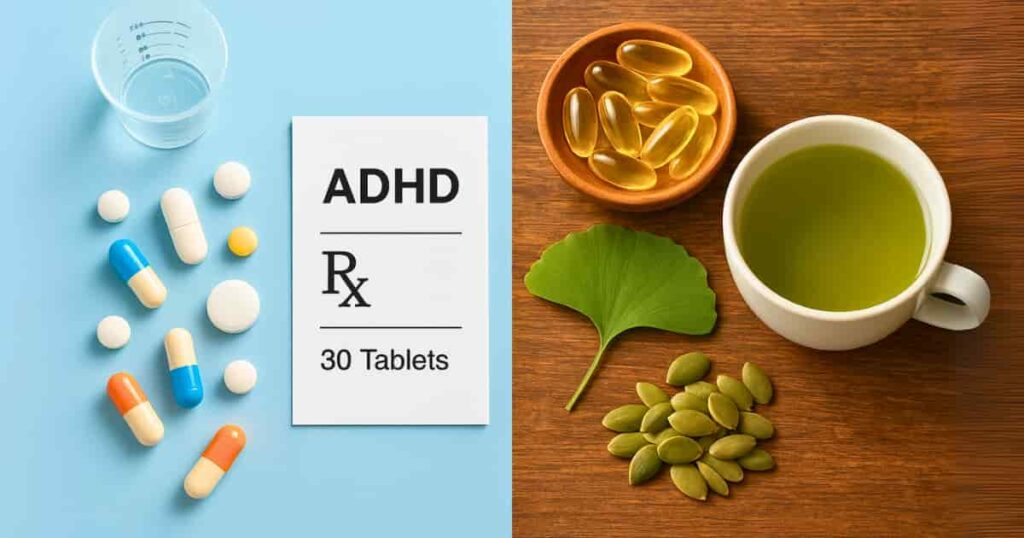
Let’s start with ADHD Medicine from a Doctor
Doctors often suggest medicine. Specifically, there are two main kinds.
- Stimulants: These are the most common. Names you might know are Ritalin, Adderall, and Vyvanse.
- What they do: Basically, they give your brain more of the chemicals that help with focus. For example, think of it like a super-powered cup of coffee for your brain. As a result, they often work very fast.
- Non-Stimulants: These are different. For instance, names include Strattera or Intuniv.
- What they do: They work more slowly and gently. Therefore, these are great for people who don’t like how stimulants feel.
The Good Stuff (Pros):
- Above all, they really work. A lot of strong science says these medicines help people focus.
- Additionally, you can see results very quickly.
The Not-So-Good Stuff (Cons):
- However, they can have side effects. For example, some people can’t sleep, lose their appetite, or feel a bit grumpy. It’s like your brain got what it wanted, but your stomach is now annoyed with you.
Now, let’s talk about Natural Ways to Help
On the other hand, these are things you can do yourself, without a prescription.
- Exercise: In other words, moving your body is like giving your brain a relaxing shower. Consequently, it helps use up extra energy and makes it easier to sit still later.
- Eating Good Food: Think of your brain as a car. After all, you can’t put sugary soda in the gas tank and expect it to run well! Instead, protein, good fats, and complex carbs are better fuel.
- Sleep: Without a doubt, this one is super important. To put it simply, a tired brain with ADHD is like a grumpy toddler; it just won’t listen to anyone.
- Routines: In fact, having a plan for your day tells your brain, “We are doing this now, no arguments!” As a result, it helps you stay on track.
The Good Stuff (Pros):
- Furthermore, these methods are good for your whole body, not just your focus.
- Moreover, you usually don’t have to worry about bad side effects.
The Not-So-Good Stuff (Cons):
- Unfortunately, they take a lot of time and effort to work. For instance, you won’t see a change after one healthy salad.
- However, the scientific proof that they alone can fix ADHD is not as strong as for medicine.
In conclusion, here is the bottom line:
Medicine works fast and strong, but it can come with side effects. Meanwhile, natural ways are healthy and safe, but you need to be very patient.
Finally, the best plan is often to use both together! For example, many people use medicine to help them focus enough to build good habits like exercise and a solid sleep schedule. Therefore, always talk to a doctor to find what is safest and best for you.
Why People Explore Natural ADHD Approaches
Ever Wonder Why People Go the Natural Route with ADHD?
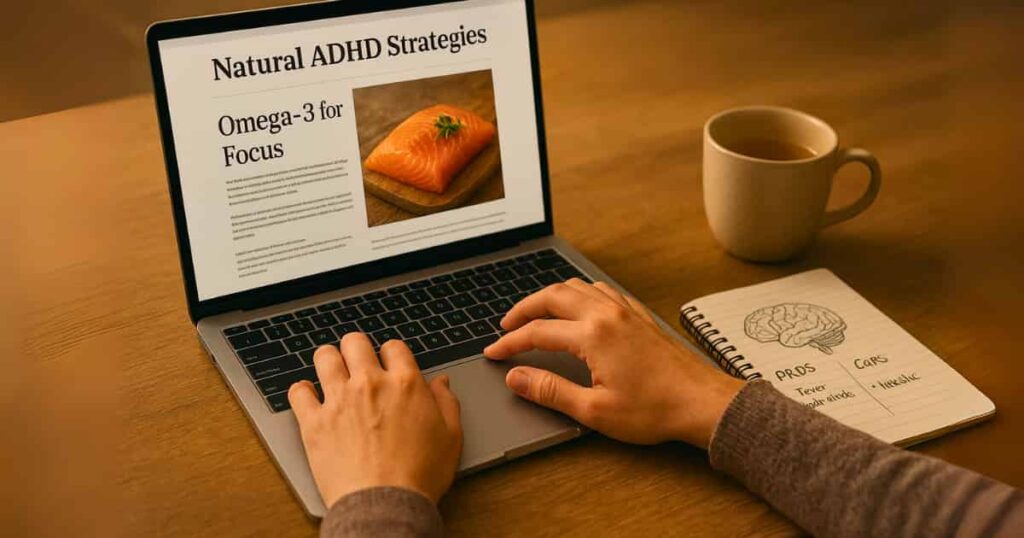
Hey—so let’s be real. ADHD is a lot. And sometimes, medication just doesn’t feel like the whole story. Maybe you’ve thought about it yourself. Wondered if there’s another way. Well, you’re not alone. Lots of people are leaning into natural approaches, and their reasons? Totally relatable.
First off—side effects. Ugh. Sure, meds might help you focus, but if you’re also not sleeping, barely eating, or feeling like you’re emotionally riding a rollercoaster… is it really helping? Sometimes it feels like you’re putting out one fire just to start three others. Not exactly sustainable.
Then there’s the whole independence thing. Lots of people—maybe you included—want to feel like they’re building something lasting. Not just taking a pill and calling it a day. It’s like… would you rather get a free meal, or learn how to cook? One fixes a problem right now. The other helps you forever.
And hey—for some folks, it’s cultural. Or even spiritual. Things like yoga, meditation, or traditional wellness practices aren’t just “tips.” They’re part of a bigger picture. They help you feel grounded in who you are. It’s not just about being focused—it’s about feeling whole.
But maybe the biggest reason? It gives you your power back. When you learn how movement, food, sleep, or mindfulness affect your brain—and you start making changes yourself—that’s you taking control. No prescription required. Just you, figuring yourself out. And that? That feels amazing.
So it’s not about right vs. wrong. Or natural vs. meds. It’s about what helps you feel like you’re running your life—not the other way around.
Thanks for reading—and hey, be kind to your brain. It’s doing its best.
ADHD Medication vs Natural: Remedies Backed by Science & Tradition
Let’s be real for a second. The whole ADHD medication vs natural support thing can feel overwhelming. It’s not about picking sides. It’s about finding what works for you. I’ve been looking into this stuff for a while, and here’s the deal with some popular natural options, in plain English.
First Up: The Plant Crew
Some herbs have been around forever because they actually help.
- Brahmi: This one is like a soothing cup of tea for your brain. People use it to help with memory and to quiet that constant mental static. It won’t make you a genius overnight, but it can take the edge off.
- Ashwagandha: If your stress levels are constantly in the red zone, this herb is famous for helping you dial it back. It helps your body handle pressure better. Think of it as your personal chill manager.
- Gotu Kola & Ginkgo Biloba: These two are the focus buddies. They might help your brain tune into the conversation instead of the flickering lightbulb across the room.
Super Important: Please, please talk to a doctor before trying these. You gotta make sure they play nice with anything else you’ve got going on.
Next: Food. It’s a Big Deal.
You wouldn’t put cheap gas in a fancy car, right? Your brain is that fancy car.
- Omega-3s: You find these in fish oil or chia seeds. They’re like the ultimate brain lubricant. They help your brain cells chat with each other without static.
- Protein, Please!: I cannot stress this enough. Eating some protein with your breakfast and lunch is a secret weapon. It stops your energy and mood from crashing before noon. Goodbye, 3 PM meltdown!
- Ditch the Fake Stuff: For a lot of people (kids and adults!), cutting out artificial junk and too much sugar is a game-changer. It doesn’t fix everything, but it can turn the volume down on the hyperactivity. It’s like avoiding a sugar crash tornado.
The Mind-Body Stuff (It’s Not Woo-Woo)
Yoga and meditation aren’t about becoming a zen master. They’re about practical brain training.
- The main goal here is self-regulation. Fancy term for not feeling like your emotions are driving a bumper car.
- It helps you become more mindful. That just means you notice your thought about what you forgot to do, but you don’t spiral into a full-blown panic attack about it.
- It also helps you sleep. And let’s be honest, everything is harder when you’re tired. A tired ADHD brain is a messy, chaotic place.
Last Thing: The Power of a Routine
I know, I know. “Routine” sounds boring. But for us, it’s freedom.
- Having a basic plan for your morning or evening saves your brain power. You don’t waste energy deciding what to do next. That energy is better spent on, you know, actually doing things.
- Move Your Body. I’m not saying you need to run a marathon. A daily walk is powerful. It boosts your body’s own dopamine—yep, the same chemical that ADHD medication targets. Lots of folks call exercise “nature’s ADHD med.” It’s free and it has no weird side effects.
- Sleep. Seriously. This is the biggest one. Nothing works right if you’re not sleeping well. Consistent sleep is the foundation for everything else—focus, mood, everything. It’s not negotiable.
Here’s the real talk on the whole ADHD medication vs natural thing:
It’s not a battle. For most people, the winning strategy is a mix. Maybe you use medication to get the initial focus to start a new exercise routine or fix your sleep schedule. The natural stuff is about building habits that make you stronger for the long run. You’re building a toolkit, not looking for a single magic pill.
You’ve got this. Just start with one small thing.
ADHD Medication vs Natural in Adults & Women
Let’s talk about something important. ADHD doesn’t always look the same in everyone. Especially for women, it can be sneaky. They might not be the “hyperactive kid bouncing off the walls.” Instead, they often struggle quietly with focus, forgetfulness, and feeling totally overwhelmed. Because of this, doctors sometimes miss it completely.
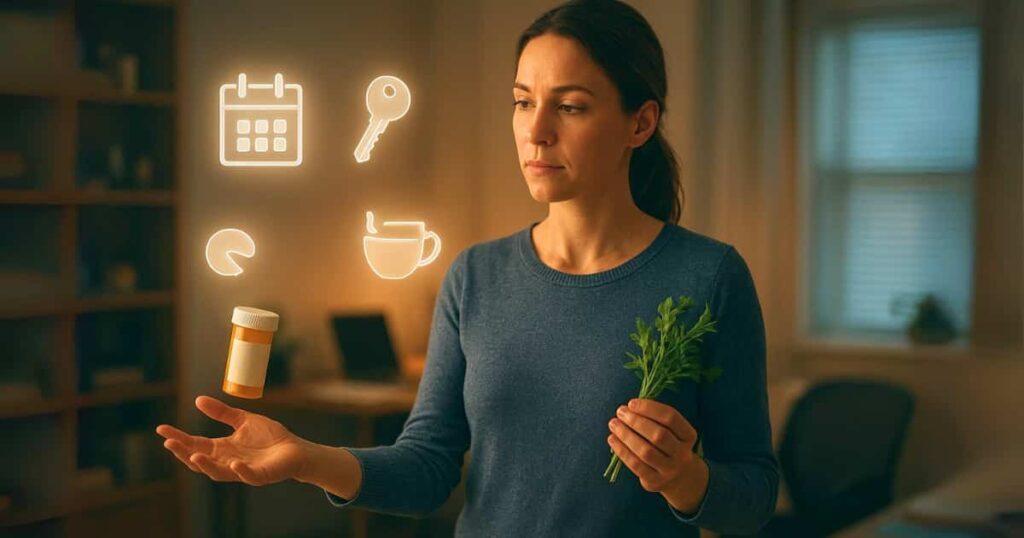
That’s where natural approaches can be a real game-changer. Think of things like mindfulness. It’s not some magical cure, but it’s like giving your busy brain a quiet place to sit down for a minute. It can help so much with the constant whirlwind of thoughts, either alongside medication or sometimes on its own.
Now, for adults with ADHD in general, the best plan is usually a mix-and-match approach. Honestly, the whole “ADHD medication vs natural” debate is kinda missing the point. Why choose just one?
Many adults find that using medication helps them focus enough to get their work done. But then, they use natural strategies to handle the rest—like stress, big emotions, and just keeping it all together without burning out.
So really, it’s not about picking a side. It’s about building your own personal toolkit. You might take a pill to help you read a long email, and then use a mindfulness app to stop your brain from panicking about how to answer it. Both things help you win your day.
You do what works for you. That’s the only rule that really matters.
Can ADHD Medication and Natural Remedies Work Together?
Alright, let’s cut through the noise. That whole “medication vs. natural” argument? In my opinion, it’s mostly nonsense. It sets up a false choice that just makes everyone anxious. After talking to doctors and, you know, actually living with this, I’ve learned the best plan usually ignores the “vs.” completely.
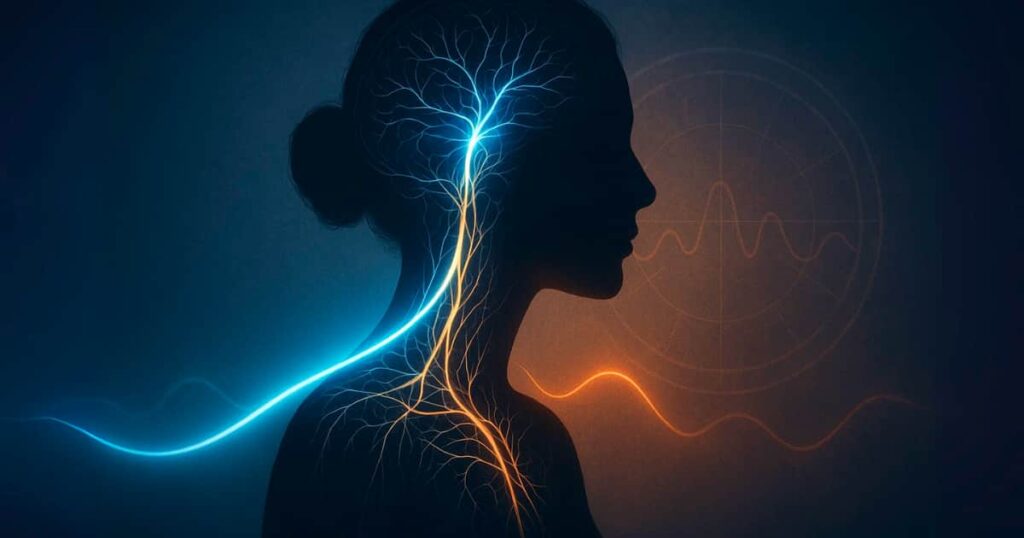
Here’s the real deal, straight talk:
Sometimes, you need the fast help. Let’s not sugarcoat it. When your brain feels like a browser with 100 tabs open, medication can be the thing that helps you finally focus on just one. It’s a tool, not a life sentence. It gives you breathing room.
But also, you gotta build a stronger brain. This is the natural stuff. It’s the protein-rich breakfast, the walk outside, the stupidly difficult effort to get to bed on time. This isn’t flashy. It’s slow and sometimes boring. But this is how you build real, lasting resilience. It’s maintenance.
The magic is in the mix. Using both is the ultimate power move. Maybe the medication helps you focus enough to actually plan and eat that healthy breakfast. And that good breakfast might mean you need a little less medication later on. They work together.
You’re not choosing teams. You’re building a personalized toolkit. Your kit might have a prescription bottle in one pocket and running shoes in the other. Who cares? If it works, it works. That’s the only thing that matters.
FAQs on ADHD Medication vs Natural Remedies
Alright, let’s cut through the confusion. You’ve got questions about ADHD—meds, natural stuff, all of it. I get it. So here are honest, human answers. No robot-talk, I promise.
Short answer? Sometimes, but it’s tricky. Some people do great with just natural approaches—especially if their symptoms are milder. But let’s be real: for many of us, natural stuff works better when it’s paired with medication. Think of it like this—you might use meds to get enough focus to actually start a yoga habit or meal prep. Teamwork!
Always talk to your doctor before making any changes. Seriously. Don’t play chemist with your brain
Brahmi and Ashwagandha get the most attention—and for good reason. Brahmi’s like a gentle nudge for your memory, and Ashwagandha helps your stress levels chill out. But… not every herb works for every person. It’s not like ordering a burger; it’s more like trying on shoes. You gotta see what fits you.
“Safer” isn’t really the right word. It’s more about what kind of side effects you can handle. Non-stimulants might be easier on sleep or appetite, but stimulants often work faster and stronger for focus. There’s no “good” or “bad”—just what’s right for your brain. Your doc will help sort this out.
YES. And anyone who says otherwise hasn’t tried a consistent routine. Exercise? It’s like nature’s ADHD med. Sleep? Non-negotiable. And mindfulness? It helps you notice your thoughts without getting swept away. These things don’t replace meds for everyone, but they sure make them work better.
Conclusion: Choosing the Best Path for Focus & Calm
Let’s get one thing straight right now. The whole ADHD medication vs natural debate? It’s not a battle where one side wins.
Not about right or wrong. It’s about what is right for you.
For some people, medication is absolutely essential. It’s the thing that lets their brain function in a world that isn’t built for it. And that is perfectly okay.
For other people, natural methods are the answer. Building habits around food, movement, and mindfulness brings them a sense of long-term calm that they love.
But for a huge number of people? The winner is both. They use medication to help them focus enough to build those healthy natural habits. The two work together like a perfect team.
So whether you find your calm through a doctor’s prescription, on a yoga mat, or by choosing foods that fuel your brain…
…the goal is always the same. We all just want a little more focus, a little more calm, and a life that feels good to live.
You do you. That’s the best choice there is.
🔗 Love mindful living? Follow us on Pinterest and LinkedIn for daily meditation tips, peaceful visuals, and more


